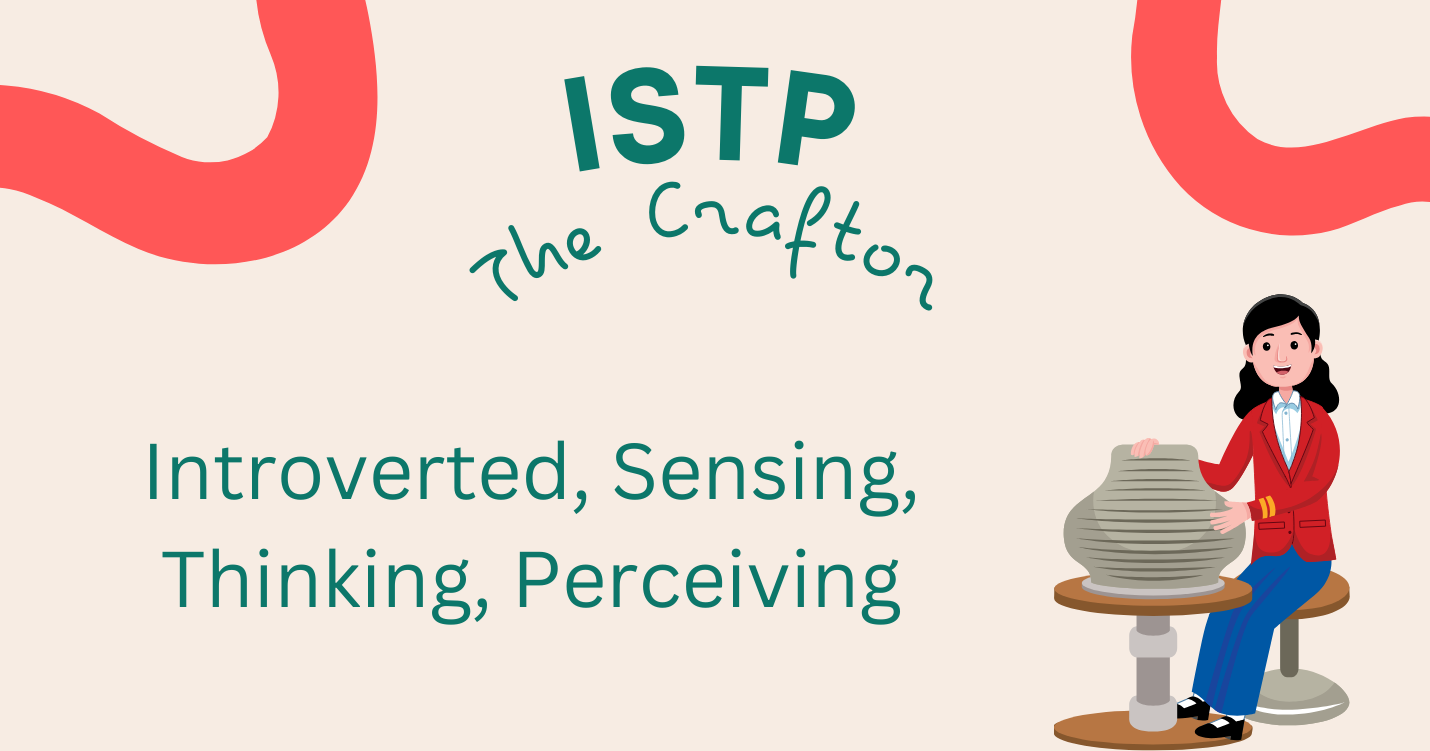

People with ISTP personalities enjoy having time to think alone and are fiercely independent. ISTPs also love action, new experiences, hands-on activities, and the freedom to work at their own pace.
ISTPs enjoy taking things apart just to see how they work. They are logical and rational but more interested in practical applications than abstract ideas. They love doing new things and can become bored with routines rather quickly.
The ISTP is a relatively rare personality type. According to the Center for Applications of Psychological Type (CAPT), ISTPs comprise about 4% to 6% of the population. They note that this type is more common in men (around 6% to 9%) than in women (2% to 3%
ISTP Strengths
- Practical and creative. The strength of the ISTP is frequently seen in their technical and mechanical skills,
- Problem solving. ISTPs excel in problem-solving because they are able to absorb large quantities of sensory information and categorize it effectively and efficiently so it is ready to be called upon when needed, even in the heat of a stressful moment.
- Common sense and world savvy. The one thing ISTPs will never be called is gullible, as this type possesses a keen ability to accurately size up the character and motives of others with striking reliability.
- Flexible. ISTPs do particularly well in physical endeavors of various types because they are able to insightfully size up their competition and position themselves
ISTP Weaknesses
- Insensitive. ISTPs tend toward blunt and unsweetened communication and in many ways, this can be a strength because it means they are honest, direct, and logical.
- Risk-seeking behavior. The ISTP’s restlessness, tendency to become bored, and constant pursuit of the thrill can lead them to pursue risky and even reckless behaviors
- Impatient. ISTPs don’t deal well with the inability to move forward, make a decision or act in the moment.
- Private and reserved. ISTPs have a strong need for personal space and solitude. In and of itself, this preference need not be classified as a weakness, though problems arise when this need dominates and causes them to push others away or avoid intimacy.
ISTP Growth and Development
In order to reach their full potential, ISTPs should:
- Make a plan
- Balance opportunism. ISTPs inherently understand how to position themselves and work skillfully with the resources and advantages they have in order to succeed.
- Learn time management skills.
- Stop and reflect. ISTPs get easily caught up in the moment and engaged in the present situation, and once it’s over they’re on to the next.
- Reframe commitment. In life, love and work, ISTPs are generally hesitant to make commitments. They live in the day and focus their energies in the present..
The ISTP at Work
At work, the ISTP is motivated by a desire to achieve and utilize technical expertise. ISTPs enjoy mastering and manipulating the tools of their trade, whatever they may be: the traditional hammers and saws, or the more modern tools of business or technology. ISTPs prefer tasks with tangible results and typically feel most satisfied when they have built something concrete. Many ISTPs enjoy occupations that involve physical activity, often with an aspect of risk or danger, and dislike being stuck at a desk. ISTPs value efficiency and logic, and want flexibility in their work. They prefer a job where they can be practical and action-oriented without being overly burdened by rules, procedures, or bureaucracy.
ISTPs in Love
In relationships, the ISTP is independent and calm. They are often handy around the house and enjoy being useful to their partners as quick and able problem-solvers. ISTPs are fun-loving and adventurous, and will often encourage their partners to learn new and exciting physical skills. They are good at responding to their partners’ immediate physical needs but may be less adept at dealing with emotions. Often private, the ISTP tends to keep their feelings and reactions to themselves. For the ISTP, this is not about withholding: they simply prefer to move on to the next activity rather than dwell on their emotional experience.
ISTPs as Parents
As parents, ISTPs often connect with their children through their mechanical and physical skills, first by teaching their children, and then by enjoying an activity together. ISTPs are rarely demonstrative or particularly verbal and may show their love to their families by crafting or building something for them rather than being outwardly affectionate. ISTPs are generous and helpful but sometimes unreliable and may become distracted from family responsibilities when adventure is at hand.
ISTP Communication Style
ISTPs are often reserved communicators, preferring action to conversation. They like to do what needs to be done and may grow impatient with discussion that does not turn quickly to action. They are often observant, picking up on details of the current situation, and evaluate information in a detached and logical way. Typically flexible and tolerant, the ISTP is ready to adapt to the situation at hand, but can be bluntly critical if they see inefficiency or incompetence.


